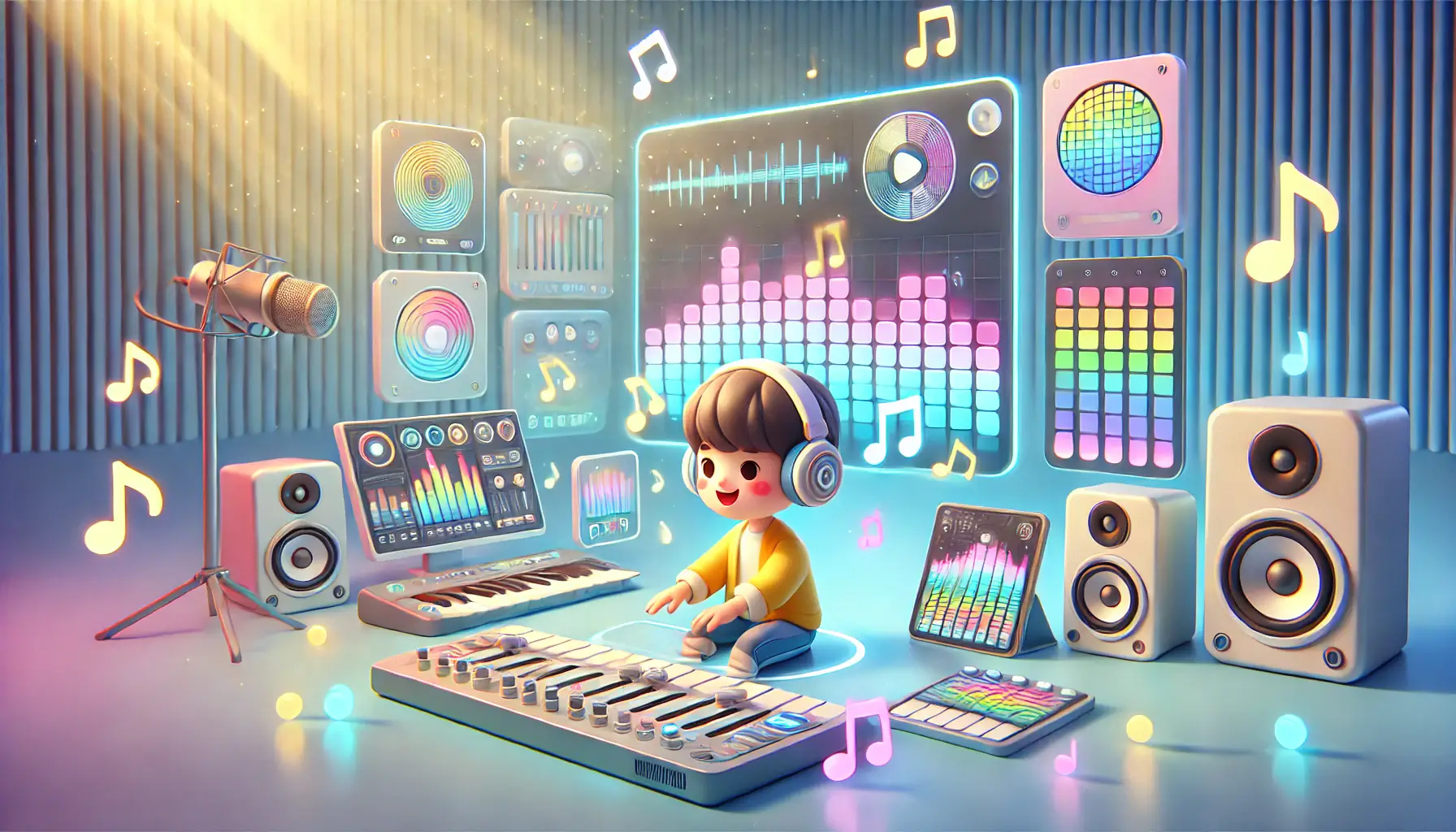Music creation has never been as accessible as it is today, thanks to advanced audio apps. These tools have redefined how artists compose, edit, and share their music, leveling the playing field for both newcomers and professionals.
With their cost-effective, user-friendly, and feature-packed design, audio apps are reshaping the way we approach music production.
Key Takeaways
- Audio apps make music production affordable and accessible, removing the need for costly studio setups.
- Seamless integration with platforms like Spotify simplifies music distribution for artists.
- User-friendly interfaces make professional-level production attainable for beginners.
- Real-time collaboration tools enable global partnerships without physical presence.
- Mobile features allow professional-quality music production anywhere, anytime.
5 Ways Audio Apps Are Revolutionizing Music Production
1. Affordable Tools for Everyone

Music production tools have become accessible to a broader audience, eliminating the need for expensive studios and equipment.
Today, anyone with a smartphone or tablet can produce professional-quality tracks with apps offering features like multi-track recording, real-time editing, and built-in sound effects.
- Fact: Some apps even mimic the functionality of traditional studio gear, making professional tools more accessible.
- Pro Tip: Start with beginner-friendly apps to experiment without feeling overwhelmed.
The affordability of these tools encourages creativity, enabling artists from all backgrounds to craft music that rivals studio productions.
2. Effortless Integration with Distribution Platforms
Audio apps now connect directly to platforms like Spotify and YouTube, removing the hurdles of traditional distribution.
For example, you can instantly share tracks without intermediaries, saving both time and money. If you’re looking for a straightforward option, get the DistroKid app for direct uploads to major streaming platforms.
This seamless integration ensures artists can focus on creating music rather than worrying about complicated publishing processes.
3. Simplified Interfaces for Quick Learning

User-friendly layouts make it easy for beginners to start producing high-quality music. Intuitive features like drag-and-drop tools, clear menus, and built-in tutorials lower the learning curve significantly.
- Tutorials guide users step-by-step to navigate the app efficiently.
- Fact: Simplified interfaces inspire experimentation, leading to more creative outcomes.
With these tools, anyone can enter the music production space, fostering inclusivity and innovation across the industry.
4. Real-Time Collaboration Across the Globe
Geographical boundaries are no longer an obstacle for musicians. Audio apps enable live collaborations, allowing artists worldwide to work on shared projects with instant feedback.
- Features include live editing, project sharing, and synchronized updates.
- Pro Tip: Use apps with cloud storage to keep your work secure and accessible for collaborators.
These real-time tools enrich creativity by merging diverse perspectives, making music production more collaborative than ever.
5. Mobile Devices with Versatile Features
Audio apps turn your smartphone or tablet into a powerful music production tool. From creating beats to multi-track recording, these apps offer professional-grade features in a compact, portable format.
- Fact: High-end apps replicate the functionality of expensive hardware, making them a cost-effective alternative.
- Many apps integrate with external hardware, enabling a hybrid workflow.
This portability ensures that inspiration can be captured anytime, anywhere, without being tied to a studio.
Conclusion
Audio apps are rewriting the rules of music production. Whether you’re experimenting with sounds, working with artists globally, or publishing your tracks, these tools simplify every step of the process.
Start exploring these innovations and join the community of creators redefining the art of music-making. Your next track is just a tap away!
FAQs
1. What are the best apps for music production?
Some popular options include GarageBand, FL Studio Mobile, and Logic Remote. These apps cater to various skill levels and offer powerful tools.
2. Can you make professional-quality music with a mobile app?
Yes, modern audio apps provide features like multi-track recording, beat-making tools, and sound effects that rival studio setups.
3. Do I need expensive hardware for music production?
Not necessarily. Many apps replicate the functionality of expensive hardware, making professional tools available at a fraction of the cost.
4. How do audio apps improve collaboration?
Features like live editing and shared projects allow artists to collaborate in real time, regardless of location.



